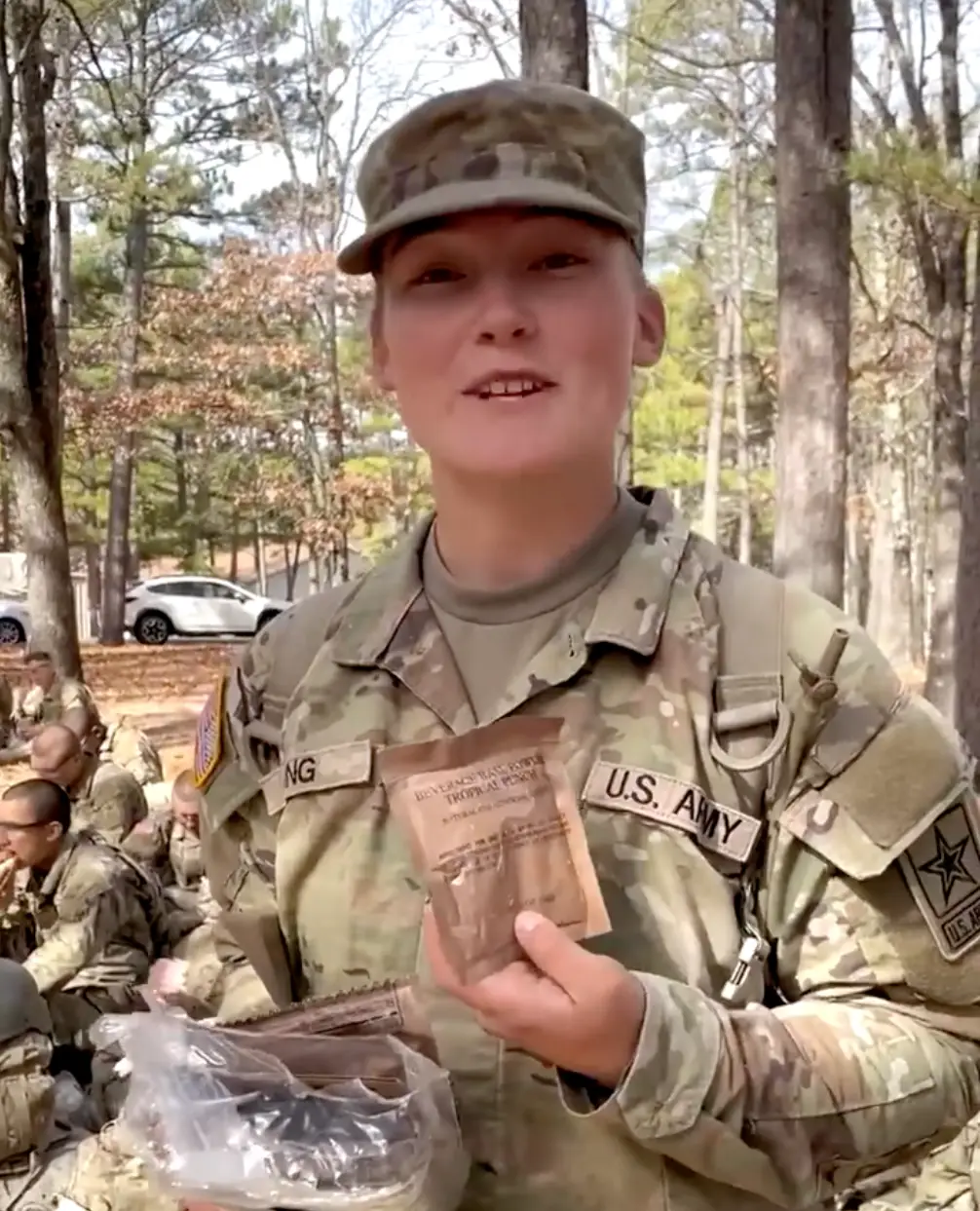In the words of Emperor Frederick the Great of Prussia: "An army marches on its stomach."
If you want to have any kind of success in the field then you need to make sure that your soldiers are properly fed and watered.
Hungry soldiers are unhappy soldiers and nobody likes that, except perhaps the enemy.
Advert

Way back in Medieval Europe, armies would live off the land they passed through.
Unsurprisingly, things have come a long way in the nearly 1,000 years since. Armed forces now have a better way of keeping their troops fed even in difficult circumstances.
Instead of requisitioning the local farmstead's grain, troops are now supplied with MREs, short for 'Meal Ready to Eat'
A video posted to YouTube but the US Army has given some insight into what these meals typically contain.
The whole thing is wrapped up in plastic to keep it fresh, and there are further pouches kept inside that to separate out the different elements.
It's easy to transport, and has a very long shelf life. Very long. The US Department of Agriculture claims that if kept at 15.6 degrees celsius MREs can last for up to seven years. Yummy!

The full contents, according to website MREInfo are typically a main course such as Spaghetti or Beef Stew, a side such as rice, corn, fruit, or mashed potatoes, a cracker or bread, a spread such as peanut butter, a dessert like cookies, and a candy.
There are also base powders for drinks such as 'tropical fruit punch'. Presumably non-alcoholic punch.
Because this is the army, soldiers who regularly eat MREs have obviously come up with a whole list of less than complimentary nicknames for the staple. I'd expect nothing less.
These include 'Meals Rejected by Everyone', 'Meals, Rarely Edible', 'Meals Requiring Enemas', 'Meals Refusing to Exit', and the very creative 'Massive Rectal Expulsions'. Nice.
Daily rations for soldiers are not a new concept. During the Napoleonic Wars, the Royal Navy went out of its way to feed it sailors well.
Their mandated diet typically included a supply of ship's biscuits, dried peas, salt beef and pork, cheese, and of course a gallon of beer a day, or some other alcohol.
Famously, citrus fruits were also introduced to prevent the spread of scurvy.
Some estimates put this at a whopping 5,000 calories a day. To be fair, you'd need it running a sailing ship.
Topics: News, US News, UK News, History, Army, Food And Drink
